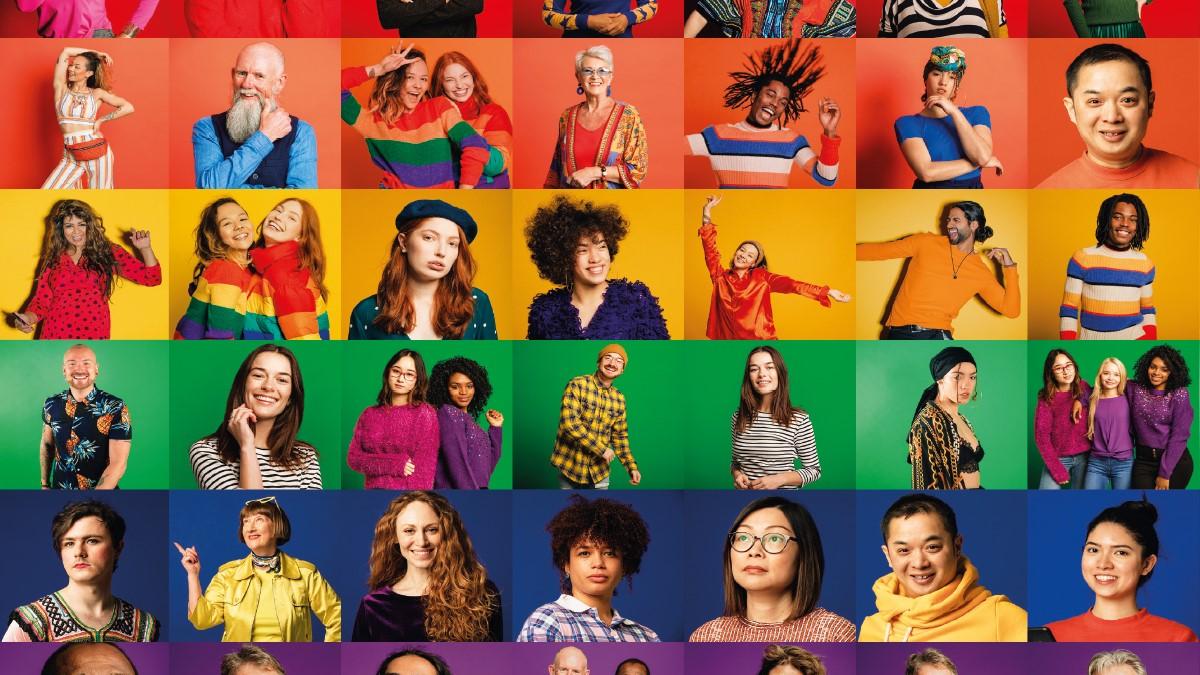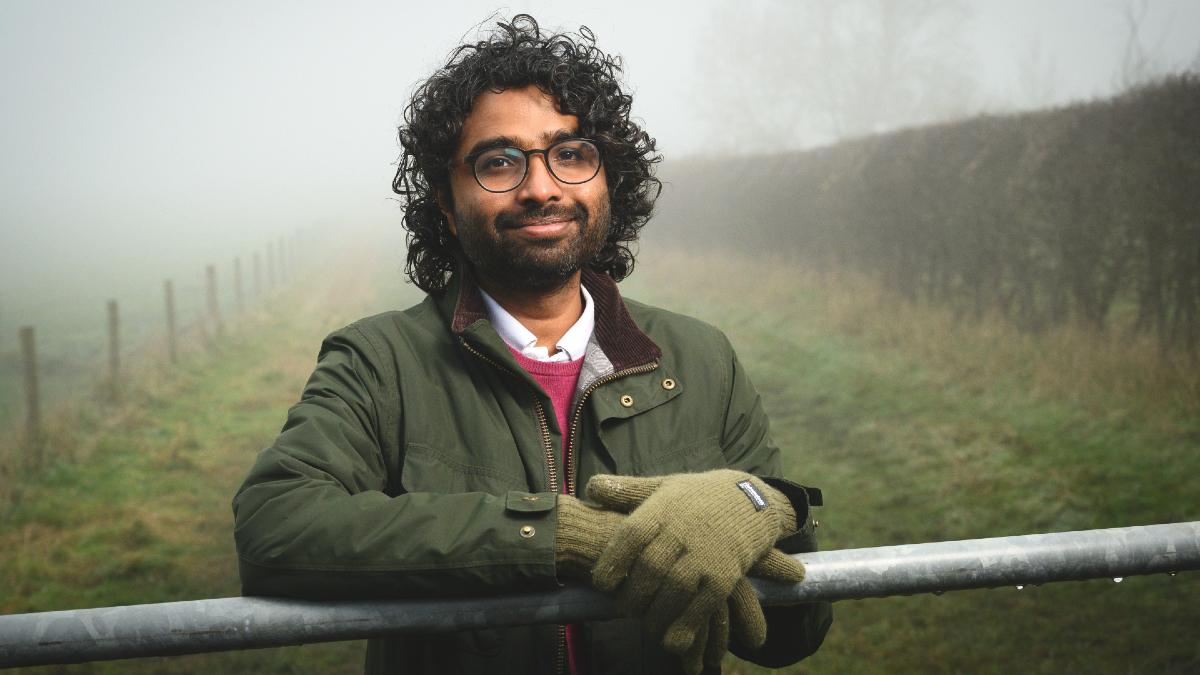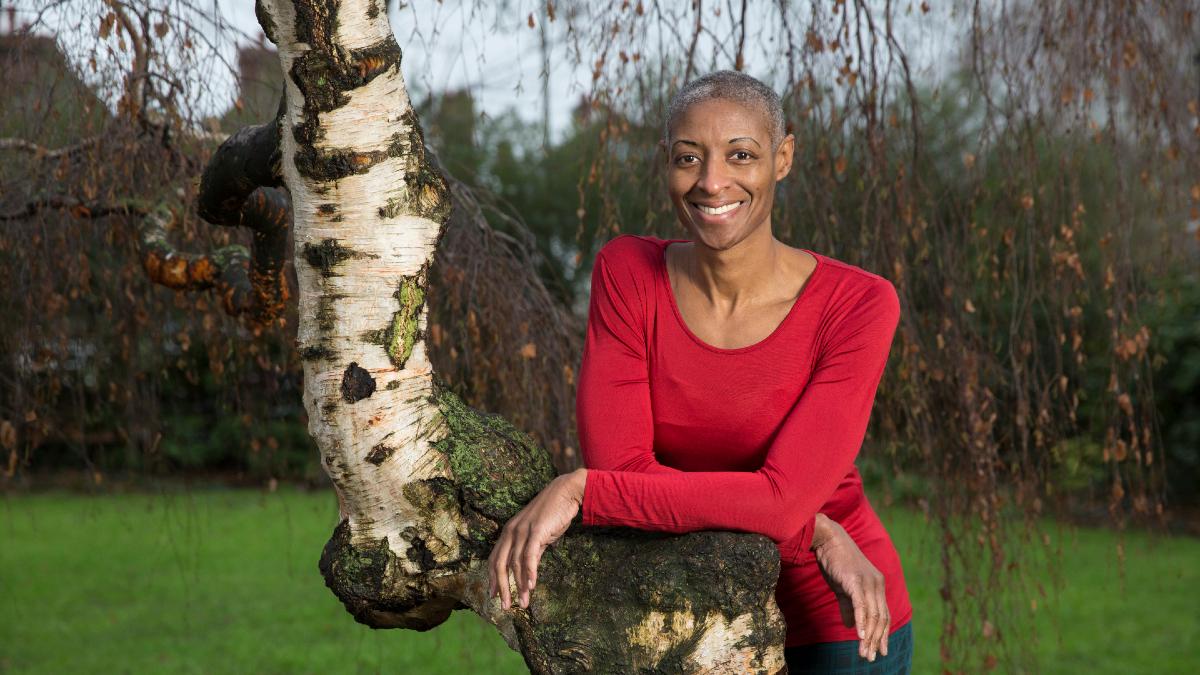To mark LGBTQIA+ History Month, Ella Braidwood speaks to LGBTQIA+ physiotherapy workers about their experiences in the profession

For the physiotherapy profession, having a diverse and inclusive workforce that represents the society we live in is beneficial for so many reasons.
For physiotherapy staff, this means feeling comfortable and able to express who they are at work. For patients, it means improved care – they can see themselves reflected in the workforce, and have the complexities of their needs understood.
Physiotherapy workers who are lesbian, gay, transgender, queer, intersex and asexual (LGBTQIA+) may face additional barriers because of their identities – and it’s important to recognise this before we can take steps towards achieving equality.
Let’s start with Stephanie Land, a musculoskeletal physiotherapist, who works at a Nuffield Health gym in Edinburgh. When it comes to the management providing an inclusive workplace, Stephanie, 36, is mostly positive.
‘It’s probably more diverse than other previous jobs I’ve been in, and it feels comfortable,’ she explains. ‘The managers are very cognizant of who is using that gym, and that’s quite refreshing that that’s always considered.’
However, she stresses that there is still work to be done. As a gay woman of Alaska Native/white heritage, she has been subjected to stereotyping from patients. ‘There’s a lot of assumptions, people think I’m Chinese and married to a male doctor with children,’ she explains.
Stephanie has at times not felt able to correct these harmful assumptions, which has taken its toll on her mentally. ‘You sometimes have to sacrifice your comfort for that person, particularly in a patient situation,’ she explains.
I’ve edited myself so many times and it’s hard work and stressful
Thankfully, Stephanie found support when she joined the CSP’s LGBTQIA+ and BAME networks last summer, partly in response to the death of George Floyd and the subsequent impact of the Black Lives Matter movement.
Her experience of the networks has been incredibly positive. ‘What I find the most help is to share experiences, both from the BAME perspective and the LGBTQ [one],’ she says.
‘Because it is a unique experience. It’s hard to talk with friends and families that are straight - they don’t necessarily really understand what it’s like to walk into a space and come out.’
She says that, within the CSP, ‘diversity is still lacking’ and that the industry is ‘still predominantly white, heteronormative, middle class’. Despite this, she credits the trade union for working to make its LGBTQIA+ and BAME networks ‘more active’ and for the steps it is taking to develop its equality, diversity and inclusion strategy.
Homophobic treatment
What does the CSP need to do to ensure the industry is inclusive for everyone?
‘There needs to be a clear message from the CSP of zero tolerance on discrimination, but also a clear statement of welcoming, that we are a profession that is diverse.'
While Stephanie praises the managers at her gym, another physiotherapist paints a far bleaker picture of her workplace. In fact, the 32-year-old, a lead for the acute non-invasive ventilation service at a trust in England, goes as far as to say that her trust is ‘probably the worst’ she has worked at in terms of inclusivity.
The area she works in ‘is quite white, middle-class, heteronormative,’ and, she says, ‘that kind of impacts the people that you work with. In the last 12 months I’ve had quite a lot of instances of overt homophobia.’
She goes on to list the discrimination she has been subjected to from staff at her trust. Like Stephanie, this includes harmful stereotyping. She says colleagues have told her, ‘you don’t look like a lesbian’, and asked if her wife, who works in the same hospital, is her sister.
‘It’s like they haven’t even considered that you might be married and have taken one of the surnames,’ she adds.
The physio describes one particularly upsetting incident involving a rainbow NHS badge. ‘One of my senior managers said that she wasn’t going to wear a rainbow badge because she didn’t get a straight badge,’ she explains.
It was specifically because of her negative experiences that this member joined the CSP’s LGBTQIA+ network, which she credits with providing a ‘very supportive’ environment.
When it comes LGBTQIA+ equality within the CSP more generally, she believes that the trade union is making progress – even if this has come a bit late.
‘If you’ve waited until 2020 to do something, it’s quite late coming to the party for it, but actually they are being quite proactive with it,’ she says.
‘They’ve always been supportive if there has been a problem, it’s just they haven’t been very open about a drive for inclusivity. But it’s a good body to be a member of because it’s so big and so powerful.’
In Birmingham, Hannah Hassell, a MSK physiotherapist, is proud to work for her employer, the Royal Orthopaedic Hospital.
Indeed, her hospital was listed among the Inclusive Top 50 UK Employers in December last year.
‘It’s very inclusive,’ she says. ‘We’ve got a massive inclusivity and equality department that focuses on all kinds of different backgrounds including black and ethnic minorities, disabilities, learning disabilities, and there’s an LGBTQ society there as well, which I’m a part of and I helped put together since joining the trust.’
Diversity network’s influence
Hannah joined the CSP’s LGBTQIA+ network after it launched on Twitter at the end of November last year. Before that, she was unaware of the network and says she ‘didn’t really know anybody from the physio perspective who were LGBT affiliated’. She praises the trade union for its ‘big push for inclusion’ more recently, including boosting its social media presence.
‘Twitter has provided us all with a massive platform to be able to contact each other with regards to anything,’ she says.
‘So, since the LGBTQIA+ network pages have come up on Twitter, a lot of people are getting more involved and more included.’

In academia, Arun Joseph, a DPhil student in clinical neurosciences at Oxford University, says his experiences as a gay man of Asian-Indian heritage have been more positive than negative.
Highlighting the work of the CSP’s LGBTQIA+ network, he says: ‘The whole title, the CSP LGBTQIA+ network, itself is a huge awareness that it is okay to be different, it is okay to belong to different minority groups.’
Despite this, Arun, who is also a lecturer in physiotherapy at Coventry University, says that those from minority groups still face ‘additional challenges and additional barriers’ compared to their colleagues.
‘So, compared to being a heterosexual, I think talking about being gay, as well as talking about your weekend or plans with a same-sex partner is not as comfortable,’ he explains.
‘So that can actually have an impact on how you mingle with your team and the team bonding, which can have a consequent impact on your work.’
Arun believes that diversifying the industry brings huge benefits for everyone, adding that steps must be taken to ensure that the university screening process to ensure that it is truly inclusive. This is something he has discussed with Rachael Moses, CSP Council member, who he praises for her podcast interviewing allied health professionals from various intersections of the LGBTQIA+ community. [Resources]
‘Having the diversity also brings different outlooks to different aspects of the profession as well, and it actually pushes the profession forward rather than having a narrow view of the profession itself, and ultimately it increases the scope of practice,’ he says.
Significant challenges
Although Arun has generally found academia an inclusive environment, this has not been the case for all LGBTQIA+ physiotherapists.
One bisexual woman, who wished to remain anonymous, explains the challenges she faces working as a researcher – and why she has chosen not to disclose her sexuality to colleagues.
‘I work across not just health, but also academia, where it is a much more paternalistic environment, and I think less welcoming than healthcare for people from minority groups,’ she says.
‘I already face some significant challenges being a female, being BAME, to add in another minority group that might disadvantage me was a decision I made that I don’t want to disclose that where I’m trying to get on in my career.’
Outside of academia, this practitioner feels generally supported by the CSP, especially by its BAME and LGBTQIA+ networks.
One of the biggest challenges she faces with her bisexuality is that of visibility. People often assume she is heterosexual because she is married to a man and, in the past, people have labelled her as a lesbian when she has been in relationships with women.
‘That label, it then sits with you, even though it isn’t you – I am still bi,’ she says.

For Andrea Wright, founder of London-based Integra Therapy, increasing the diversity of the practice would only benefit both staff and patients, especially for black queer women like herself.
‘How transformative would it be that my queer black patient comes in and understands, and sees a queer black physio?’ she says.
‘I’ve had clients like that and the joy of the exchange is extraordinary. We’re not doing magic here, but it’s all about relationships.
That’s meaningful. I’m listening to them. I see them. That’s powerful.’
She adds: ‘How can we be allowed to be who we really want to be and thrive? Not in spite of my femininity, my womanhood, or not in spite of my blackness. I want to inhabit all of those and I want to take up my space.’
For Andrea, who has only recently fully come out as queer to her professional colleagues, her willingness to show herself is ‘quite telling for the profession in and of itself.’ She adds: ‘I think it doesn’t lend itself for freedom of expression and the fullness of ourselves to come to the table.’
Despite this, Andrea praises the CSP for how it has made steps to improve its inclusivity throughout her career, including by commissioning an LGBTQIA+ journalist to write this article.
‘The fact that the CSP are considering calling an individual who identifies from the [LGBTQIA+] community to interview somebody within the community, is moving icebergs, right?’ she says.
She continues: ‘The very fact that I can find myself gravitating towards an organisation that I have largely disassociated myself from is progress in my mind. Because there is a language here now, because people are speaking, because there is an openness and willingness to be able to have these nuanced conversations.’
Significant progress
For one physiotherapist at an NHS trust in Bristol, who wished to remain anonymous, LGBTQIA+ equality has progressed significantly throughout her 16-year career.
‘When I started in the organisation it wasn’t really anything that was talked about,’ she says. ‘You had to come out to people, so that was quite difficult at the time.’ She adds: ‘I found out I was coming out a lot, and that was quite stressful.’
Nowadays, however, she says: ‘It’s not even forced out. I’m now married and have got children. People still do ask: “Oh, what does your husband do?” But it doesn’t seem to be the same that it used to be. It’s much more naturally discussed.’
Despite this, she acknowledges that she is lucky at her trust. ‘I would be really disappointed to hear that it’s happening elsewhere, I just think that it’s absolutely outrageous in this day and age,’ she adds.
She points to the transgender community as the next step.
We need to help support them in the same way the rest of us have been supported
Indeed, none of the professionals in this article identified as transgender or non-binary – it’s vital to include their experiences in this drive towards LGBTQIA+ equality in the profession. [This month's Frontline also includes a profile of trans physiotherapy student Niko Brenner, who talks about the benefits of diversity within the healthcare workforce].
For Hamza Anwar, 40, a newly-qualified children’s physiotherapist based in London, his experiences have so far been positive within the work environment. ‘The people I work with are super lovely, and we all get along really well, and they’re very supportive.’
He adds: ‘I’ve been quite open about my sexuality, if I’m talking about something about partners and things like that, and everyone seems pretty chilled and relaxed.’
In his short time within the profession, Hamza believes he has seen a progression when it comes to equality.
‘I think there’s been a slight shift with the way society as a whole thinks about stuff,’ he says. ‘That’s with what’s happened recently with the Black Lives Matter movement, and this pandemic we’re currently in as well, exposing those inequalities in our society.’
He enjoys being part of the CSP’s LGBTQIA+ network, which he joined while at university, saying it is ‘educational and fun, because people are really lovely, it’s really supportive.’
Still, he stresses that organisations should always work to improve their equality policies. ‘All institutions, no matter where you are, need to look at your policies and review your policies, it’s so important as an institution or an organisation to do that, and to do it with the widest representation within your organisation,’ he says.
What benefits does a welcoming and inclusive workplace bring? ‘As a clinician, what it does is it increases or ups your scope of practice,’ he says.
'You become a bit more of a well-rounded clinician or professional. The way that you’re doing it is by adopting a kind of a holistic approach to patient centred care – because you’re learning from different stories and from different experiences.’
Number of subscribers: 1




































